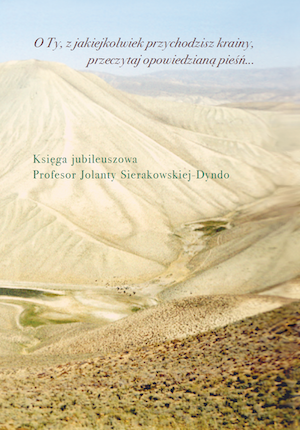Rola sufickiej szkoły Naqszbandiji Mudżaddidiji w kształtowaniu się współczesnego fundamentalizmu muzułmańskiego w Afganistanie na przykładzie uczelni Nur al-Madaris Faruqi w prowincji Ghazni
The Role of Sufi School in Naqshbandiya in Forming Contemporary Muslim Fundamentalism in Afghanistan
Author(s): Szymon Skalski
Subject(s): Cultural history
Published by: Wydawnictwa Uniwersytetu Warszawskiego
Keywords: sufism; Islamic Emirate of Afghanistan; Taliban; Naqshbandiya; Ghazni; Afghanistan
Summary/Abstract: This article contributes to a broader study on the role that Sufism could play in the formation of the Islamic Emirate of Afghanistan and religious fundamentalism in contemporary Afghanistan. The author uses the Sufi concept of the chain of spiritual genealogy (silsila) to analyze the connections between the graduates of the Nur al-Madaris Faruqi madrasa founded at the beginning of the 20th century and the participants of the fundamentalist organizations later associated with the Islamic Emirate of Afghanistan. Due to the geographical location of the madrasa (Ghazni province), this analysis mainly focuses on the area of eastern Afghanistan and the period from the 1940s until 2021.
Book: O Ty, z jakiejkolwiek przychodzisz krainy, przeczytaj opowiedzianą pieśń…
- Page Range: 347-363
- Page Count: 17
- Publication Year: 2022
- Language: Polish
- Content File-PDF

